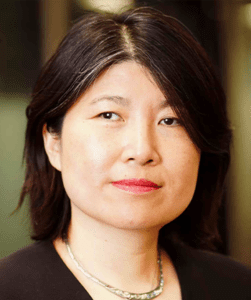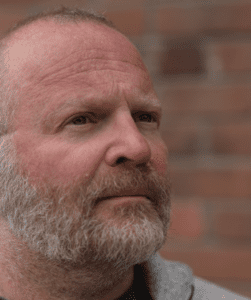Posted By: Kylee Spencer, PhD, Assistant Editor, AJHG
Each month, the editors of The American Journal of Human Genetics interview an author of a recently published paper. This month we check in with Lei and Andrew to discuss their recent paper “eXclusionarY: Ten years later, where are the sex chromosomes in GWAS?”.
KS: What motivated you to start working on this project?

LS: Since the Wise et al., AJHG 2013 eXclusion report ten years ago that documented that the X chromosome was typically excluded from GWAS, my lab has been thinking about developing statistical methods for the X chromosome, primarily focusing on handling X chromosome inactivation in association analysis. The progress started slow and culminated in 2021 with what we thought was a complete solution. But we soon recognized that, to truly realize the inclusion of the sex chromosomes, all other aspects of a genetic study also need to be developed or re-evaluated.
AP: I have always been intrigued by the sex chromosomes, and recognized that there were aspects of the biology that I did not fully understand. I suspect that others feel the same way. As part of a larger project examining quality of genetic variants, we recently identified that there were sex differences in allele frequency for some variants on the X chromosome (). In the process of trying to understand why this is the case, we re-read the important paper by Wise and colleagues. We wanted to find out whether the eXclusion of the X chromosome had changed, and what impediments need to be addressed in future research.
KS: What about this paper/project most excites you?
LS: Its potential to change the current autosome-wide association studies (AWAS) practice to a full GWAS one and, to achieve this, bring closer researchers with complementary expertise.

AP: That although analysis of the X chromosome has gotten worse, we see that there is great opportunity for identifying loci on the sex chromosomes, with exciting biology, for example loci with sex-specific effects.
KS: Thinking about the bigger picture, what implications do you see from this work for the larger human genetics community?
LS: First, I hope the work resonates with bioinformaticians because, without good-quality data, all downstream analyses and interpretations are scientifically questionable. Second, this paper will help disseminate the advances made by statisticians, particularly in the area of X chromosome inactivation, so that all future GWAS are truly genome-wide. Lastly, when developing methods for all genetic studies, I want to see statisticians actively adopt the sex chromosomes and work closely with geneticists to avoid blind spots.
AP: In the last decade there has been increasing focus in biomedical research on sex and gender. It is therefore oxymoronic, that the genetic factors that determine sex, are predominantly ignored by human geneticists. Focusing on topics or regions of the genome that are typically ignored offers potential for new insights.
KS: What advice do you have for trainees/young scientists?
LS: As a statistical geneticist, I believe that solid training in mathematical statistics provides research longevity, and working closely with collaborators with complementary expertise strengthens research relevance and impact.
AP: Find a topic that you are passionate about, and that is a little away from the mainstream.
KS: And for fun, tell us something about your life outside of the lab.
LS: Our family loves traveling and sports. Outside work and family, I don’t have many hobbies…yet (as there are only 24 hours in a day). Now that my kids are older (one started university, and the other is in high school), I can carve out more time for myself. So stay tuned, although I hope another eXclusionarY report will not be needed in 2033!
AP: I recently completed a bicycling training course that allows me to teach others how to cycle safely.
